Just when you thought it was safe to go back in
the water!
Yes, it’s Epic Yankees Flameout Season, Episode
Six!!
The year?
1973. The Watergate
hearings were heating up, Israel would soon be at war with half the Middle East
again, and a young, prematurely balding Englishman was teaching us all how to
dance to the Crocodile Rock!
Yankees
80-82, 4th in a six-team division.
For the first time since the end of the Seventh
Dynasty after 1964, the Yankees had actually contended into September, in
1972. After making a few, key
improvements, Las Vegas actually had them as the favorite to win the American
League East, something Sports Illustrated
called one of the silliest betting lines out there. And…it turned out that SI
was right.
Background:
The Yanks’ starting pitching had been five-deep
down the stretch in 1972, with all five starters—Mel Stottlemyre, Fritz
Peterson, Steve Kline, Mike Kekich, and Rob Gardner—all 30 or younger.
So, with 23-year-old George “Doc” Medich
looking ready for the majors, the Yanks swapped Gardner, a one-time Mets phenom
who had bounced back to have a terrific half-season for the Bombers, to Oakland
for Matty Alou, a 34-year-old, one-time batting champion who hit .307 in
1972. The move not only filled
what had become a perpetual hole in right field, but gave the Yankees, who
already had Felipe, two of the three Alou brothers, which should have settled
all pennant talk right then and there.
But as has often been said, you can have all the Alous you want, but if you don't have Jesus, you're missing something.
Expectations were running amok. The infield consisted of Felipe and
fielding-challenged Ron Blomberg at first, the veterans Horace Clarke and Gene
Michael up the middle, and a promising newcomer, one Graig Nettles, acquired
to play third in exchange for John Ellis, Jerry Kenney, Charlie Spikes, Rusty
Torres, and any other broken old tools the Yanks happened to have lying around.
In the outfield with Matty were Bobby Murcer,
who had emerged as a genuine star over the past two seasons, and Old Reliable
Roy White, with vets Johnny Callison and Ron Swoboda to back them up. Behind the plate was Thurman Munson,
who was hoping to return to his rookie form, after a couple of slightly
disappointing seasons. Along with
all those starters, there was a deep bullpen headed by 1972 sensation Sparky
Lyle and Lindy McDaniel, and including Ron Klimkowski and Fred Beene, acquired
from the Orioles, where Earl Weaver always swore Beene could be his No. 4
starter.
What’s more, it was the last year in the Grand
Old Cathedral itself, the Real Original Ray's Yankee Stadium, before the Yanks
moved over to Shea for two seasons while the city demolished, uh, renovated their park and provided a flimsy,
plastic replacement.
Hopes were high that the team could bring back
a flag for it’s last year in The House That Ruth Really Built—and nowhere were
they higher than in the office of the young, turtleneck-clad man from
Cleveland, one George Steinbrenner, who had acquired control of the team in
offseason from CBS by putting up all of $800,000 of his own money.
Steinbrenner quickly assured the New York
media, though, that he would let all the baseball decisions be made by the
Yanks’ crack(ed) triumvirate of Manager Ralph Houk, GM Lee MacPhail, and
President Michael Burke.
What
happened:
What didn’t happen?
Before the team was even out of spring
training, it had been engulfed in the notorious, Fritz Peterson-Mike Kekich
wife-swapping episode. This did inspire
one of the all-time great cracks from a new Yankees executive, one Gabe Paul,
brought over from Cleveland by the Yanks’ new owner:
“Well, I guess we’ll have to cancel Family
Day.”
Before the end of April, Paul was actually the
new president of the club, as Steinbrenner utzed out Mike “the Dashing Boob”
Burke, the man he had sworn he would let run the club about ten minutes
before.
The team, meanwhile, got off to a hideous
start, being beaten on Opening Day at Fenway, 15-5. The only highlight was that Ron Blomberg, the man born to be a designated hitter, drawing a
bases-loaded walk off Luis Tiant, in the first at-bat by a major-league DH,
ever.
Things went quickly downhill from there, and
the Yanks lost the next day, too, 10-5, before Boston completed the sweep when its new DH, future Hall-of-Famer Orlando
Cepeda, belted a walk-off home run off Sparky Lyle. Still, after yet another loss against Cleveland in the last
ever, Real Yankee Stadium home opener that especially infuriated You-Know-Who,
the Yanks slowly began to right themselves.
By May 1st, they were 10-10, and in
second place, and by May 23rd they were tied for first in a
sluggish, AL East. A walk-off
homer by Nettles capped a June 24th doubleheader sweep of the Tigers
and an eight-game win streak that left the Yanks at 40-30, and two games up on
the division.
The Yankees under Gabe Paul were beginning to
wheel-and-deal like the pinstripers of old with a pennant in the balance. Kekich was quietly palmed off on Cleveland, but Paul picked up Pat Dobson from Atlanta and
Sudden Sam McDowell for cash, two veteran stars who—much like Happ and
Hapless—looked like they still had plenty left.
Jim Ray Hart, a righty third baseman
for the outstanding Giants teams of the 1960s, was brought over to platoon at
DH with Blomberg, and while Jim Ray couldn’t move much in the field anymore, he was
still a pretty good hitter.
Blomberg, meanwhile, batting mostly against righties, was hitting .397 on
July 1st, flirting constantly with both the .400 mark and enough
at-bats to lead for the batting title.
After sweeping another doubleheader that same day, the Yanks were 45-34, in first by 4 games
and ready to start a five-game series, at home, versus the Red Sox, then mired
in fourth place.
Disaster.
On the opening, Thursday night game, Fritz Peterson pitched a two-hit,
complete game—and lost, 1-0, on a homer run by Dewey Evans. The Yanks left 8 men on base and loaded
the bases with two out in the ninth, but the great John Curtis got Felipe Alou
to pop to second.
The next night, the Yanks rallied to win, 3-1,
behind McDowell and Lyle. Then
came a Saturday-afternoon doubleheader on the Fourth of July, the
biggest date in Yankee Stadium in nine years, with almost 42,000 in attendance. Mel Stottlemyre carried a 1-0 lead on a
Murcer home run into the ninth, but when he gave up a leadoff single to Reggie
Smith, Houk pulled him for Lyle.
It seemed like a good idea. Lyle gave up another single to Yaz,
then booted a sacrifice bunt by Cepeda to load the bases. But this was vintage, heart-stopping Sparky, and he struck
out Rico Petrocelli, and induced Carlton Fisk to hit an easy bouncing ball to Nettles
at third.
Many Indians fans would never forgive Gabe Paul
for the Nettles deal, believing that he already knew he was going to the
Yankees. But Nettles was far from
a finished product in 1973. He hit
only .234 with 18 homers that year, and he made 26 errors at third.
Now, instead of taking the
sure out at home and hoping Munson could get the plodding Fisk at first, Puff tried for a difficult, round-the-horn double-play.
He got one out at second, but the relay was too late to nip Fisk.
The tying run was in, but the good news was
that Yaz, running head down as usual, was a dead duck at home. The bad news was that, inexplicably,
Ron Blomberg was still in the game at first.
He threw wildly to home. Yaz scored. In
the bottom of the ninth, after a leadoff single by Hoss, Houk sent up Felipe
Alou, who should have been in at first already, to pinch-hit—and bunt. He bunted into a forceout. Murcer singled him to third but, with
two outs, Houk pulled Blomberg—still hitting .388, albeit against righties—for back-up infielder
Celerino Sanchez, hitting .222. He
grounded back to the pitcher.
In the nightcap, Doc Medich pitched a
complete-game, five-hit shutout—and lost, 1-0. Nettles flied out with the bases loaded and two out in the
first, and the Yanks left nine men on base. In the Monday afternoon finale, before fewer than 13,000
fans now, the Sox pounded the Bombers, 9-4.
The team never really recovered. They managed to hang onto some part of
first until August 2nd, when they took another belting from Boston,
10-0, this time in Fenway, but Baltimore was already racing by both clubs. The Yanks collapsed after that, going
21-38 down the stretch, to finish with their first losing record since 1969.
The hitting, as the Boston series suggests, was
generally dreadful. Blomberg
dropped all the way down to .322, even as a platoon player. Both Alous were gone before the end of
the season. Matty somehow managed
the seemingly impossible mathematical feat of batting third, hitting .296, and
driving in just 28 runs in 123 games.
Roy White had probably his worst season ever as a Yankee, and the bench
was almost uniformly terrible.
The pitching, though, was the major
disappointment. After their bright
early showings, Dobson and McDowell stank up the joint. Dobson would rebound, but McDowell
would end his alcohol-troubled career in 1974. Peterson was awful—no doubt distracted by this and that—and
Steve Kline’s arm, which had looked weary at the end of 1972, gave out
altogether. He would never be the
same pitcher.
Bright
spots:
There were a number. Stottlemyre had his last good year with the Yankees, whil
Doc Medich proved he belonged in the majors, and the bullpen was generally
excellent. Munson hit .301 with a
career-high 20 homers, threw out nearly half of everybody who ran on him, and
won the Gold Glove. Murcer had
another excellent season.
What
happened next:
Well, George exploded, of course, and launched
a general housecleaning. Houk was fired on the last day of the season. Steinbrenner would almost never again
show such restraint; later managers would have gone between games of that
July 4th doubleheader.
MacPhail jumped before he was pushed, becoming
president of the American League.
That left Gabe Paul to do pretty much what he pleased—particularly once
George was “suspended from baseball” for his illegal campaign contributions to
Richard Nixon.
Paul would move out Clarke and Stick—clearly at
the end of the line—deal Lindy MacDaniel (38 in 1974) for a certain outfielder
I like to call Lou Piniella, ship Peterson, Kline, Beene, and Tom Buskey to his
old team for Chris Chambliss and Dick Tidrow; and scoop up such highly useful
lugnuts as Elliott Maddox, Chicken Stanley, Jim Mason, Sandy Alomar, Rudy May,
and Larry Gura, for next to nothing.












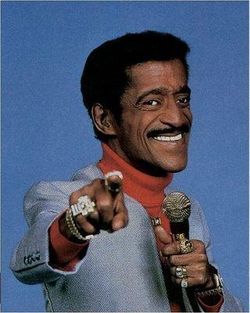
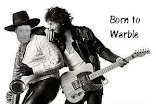


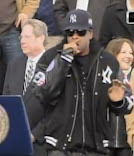











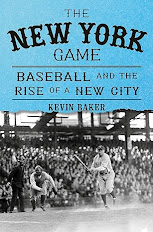









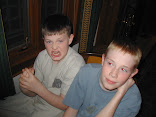

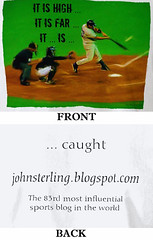



4 comments:
Bravo! Great read.
Thank you!
Thanks, folks!
Ah, that was a pineapply year! Four straight, fantastically well-pitched games against Boston...and we lost three of them. Thank goodness I was still young enough to stand the strain. Today, it would drive me to drink, for sure.
Hmm, speaking of which...
I really want the world to know about this great man who brought back happiness into my life again after my husband left me and the kids 3 years ago for another women online when i contacted Dr Believe he cast a love spell for me within 48 hours my ex husband start calling me and begging for forgiveness for everything that have happened between us. I was so happy to have my family back together with love again here is the email of Dr Believe via believelovespelltemple@gmail.com a man with the great powers you can also call him or add him on Whats-app: +2348156148821
God bless you
I am very grateful for your help in my marriage.
Post a Comment